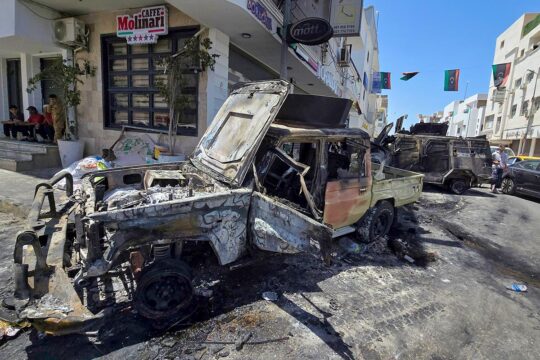A Saudi-led Arab coalition launched military operations in Yemen in 2015, helping the government to push back against rebels who had taken control of the capital and seized several provinces.
The conflict has killed nearly 10,000 people since the intervention and heaped misery on one of the poorest countries in the world.
As coalition-backed government forces on Wednesday mounted an offensive to retake the vital port city of Hodeida, in rebel control for more than three years, here is a broad overview of the conflict.
- Saudi air strikes -
The Saudi-led coalition launches air strikes on Shiite Huthi rebels in March 2015, six months after they took Sanaa and with large swathes of Yemen also in their hands.
The coalition aims to prevent the fall of President Abedrabbo Mansour Hadi and to restore his internationally-recognised government.
In July, Hadi's embattled government announces it has retaken the southern province of Aden in its first success since the coalition stepped in.
The coalition supplements its air power with hundreds of ground troops, and by mid-August 2015 loyalist forces have retaken five southern provinces.
In October, government forces reclaim control of the Bab al-Mandab Strait, one of the world's busiest shipping routes.
- Rebels kill ex-president -
Splits emerge in the rebel camp in 2017 resulting in the assassination of Hadi's predecessor, Ali Abdullah Saleh, by Huthi fighters in December.
Saleh had stepped down in 2011, after ruling Yemen with an iron fist for nearly three decades, and had later allied himself with the rebels.
Rebels strengthen their grip on the capital.
- Splits in government camp -
In January 2018, fierce clashes erupt in the port city of Aden, the de facto capital after the capture of Sanaa, between southern separatists and fighters loyal to Hadi.
The separatists, supported by coalition member United Arab Emirates, seize most of the city.
- Missiles on Riyadh -
From November 2017 the rebels intensify missile attacks on neighbouring Saudi Arabia, which in turn accuses its arch-foe Iran of supplying them with weapons. Iran denies the charges.
The coalition tightens its control of Yemen's borders to prevent weapons deliveries, only partly easing up after warnings of the impact on desperately needed food and humanitarian aid deliveries.
Seven missiles are fired on March 25, 2018 alone. The coalition claims the rebels are receiving Iranian arms via the Red Sea port of Hodeida.
- 'War crimes'-
In March 2018, Amnesty International accuses Western countries of supplying Saudi Arabia and its allies with arms for attacks "many of which may amount to war crimes".
In 2015, coalition planes are accused of hitting a wedding hall in the town of Mokha, killing 131 people. The alliance denies responsibility.
In October 2016, a coalition air strike at a funeral in Sanaa killed 140 people.
- Advance on aid port -
In December 2017, government forces make a breakthrough in efforts to reconquer Hodeida when they drive Huthi fighters out of a town en route called Khokha.
Hodeida -- the entry point for the bulk of the country's food and aid -- has been in rebel hands since October 2014, taken without opposition from government forces soon after rebels captured Sanaa.
Government forces press their advance and in April the insurgents' second-in-command, Saleh al-Sammad, dies in a coalition air raid in the city.
By early June, government fighters, backed by Saudi and Emirati forces, are just nine kilometres (six miles) from Hodeida.
- Assault begins -
As government reinforcements arrive, the UN scrambles to find a way to avoid a fullscale assault on the city, warning of a "catastrophic humanitarian impact" and withdrawing all its staff there.
The offensive is launched on June 13.


